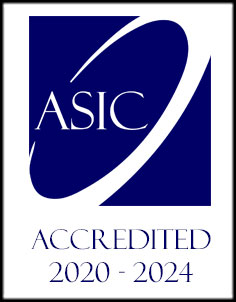Course Overview
A recent UNDP report stated 'Sustainable energy deeply influences people’s lives and is an engine for poverty alleviation, social progress, women and youth empowerment, equity, enhanced resilience, economic growth and environmental sustainability'.
With the UN General Assembly establishing the ‘UN Decade on Sustainable Energy for All 2014-2024’ there is a growing recognition that sustainable and reliable energy planning is essential for long-term development. External factors such as political instability and climate change have altered the energy landscape and organisations must adapt to these new environments to achieve long-term energy security and reliable access. This course will cover recent technical and theoretical developments in the field and will provide participants with a thorough understanding of how to implement effective sustainable energy action plans.
Participants will be trained through discussions with leading actors in the sector to identify, assess and utilise sustainable energy sources in developing plans for national or local consumption. Alongside knowledge of traditional energy sources, training will be given on new and renewable sources of energy, how viable these are for individual countries and how they can be incorporated into planning. The programme will spend time focussing on energy poverty and access, ensuring factors are incorporated into energy strategies whilst providing participants with the tools to generate effective monitoring and evaluation mechanisms.
Learning Outcomes
By the end of the course the delegates will be able to:
- Analyse multiple and multi-scalar sources of sustainable energy and their relationship to provision and access
- Integrate key sustainable energy issues with planning strategies
- Assess and evaluate energy sources and their sustainability
- Examine how to facilitate technology transfer
How You Will Benefit
- The opportunity to gain an internationally recognised professional qualification
- Hear the latest insights, research and developments in energy planning from leading experts
- Network and share ideas with colleagues from around the world
- Enhance your skills and knowledge in the management of energy plans and projects
How Will My Employer Benefit?
-
Value for money
Investing in training that comes with professional recognition -
Return on investment
Demonstrably better quality outcomes through an up-skilled workforce -
More proficient management
Leadership within the organisation, with associated benefits of improved service delivery and greater productivity -
Improved employee morale
Leading to reduced staff turnover, greater stability, and less need to spend money on externally recruiting new managers and leaders -
Immediate results
Skills you learn are immediately applicable in the workplace, because of our tailor-made approach
Agenda
Day One
- - Scene Setting- Training Objectives and Expectations via Mentimeter/Slido tools.
- - What do we mean by ‘Sustainable Energy Planning’?
- - Who are the major actors?
- - Climate change and related international agreements
- - Energy security
- - The cost of energy
- - Access to energy
- - Political priorities and realities
- - Local context
- - Energy as a source of political control
- - Advancements in the field of renewables
- - Technological and efficiency considerations
- - Storage
- - Debate on nuclear power
- - New sources of energy
- - Market mechanism vs regulation
- - Reducing carbon intensity through regulation
- - Accountability mechanisms
- - What is energy poverty?
- - How these three factors interlink
- - Delivering access to basic modern energy for the poor
- - Sustainability of energy access
Day Two
- - Climate change creating risks for energy infrastructure
- - Incorporating climate change adaptation into energy plans
- - Building effective dialogue and partnerships
- - Establishing monitoring and evaluation systems
- - Ensuring financial sustainability
- - Tackling corruption, funds management and security issues
- - Stimulating innovation and creating markets
- - Centralised vs decentralised planning and delivery
- - Community-led energy initiatives
- - Transport sector lens to energy planning
- - Transportation and Infrastructure
- - The technical potential for improved energy efficiency
- - The economics of energy efficiency
- - The unintended consequences of improved energy efficiency
Day Three
- - Who are the key stakeholders?
- - Building support from stakeholders
- - How to engage in stakeholder participation
- - Public-private partnerships
- - Funding and financing options
- - Methods of supporting low-carbon transitions
- - Analysing role of international and national policies
- - What are the key elements to a good energy strategy
- - How to develop a strategic energy plan?
- - Developing a participatory approach to your action plan
- - Organising multi-stakeholder actions across all relevant sectors of the economy
- - Political commitment
- - Communicating the strategy
- - What are the key opportunities and challenges for your organisation?
- - Workshop: How would this work in your organisation?
- - Setting ambitious, yet realistic, targets
- - Implementation and reporting
- - Regular monitoring using relevant indicators
- - Evaluation mechanisms
- - Adopting corrective measures if necessary

